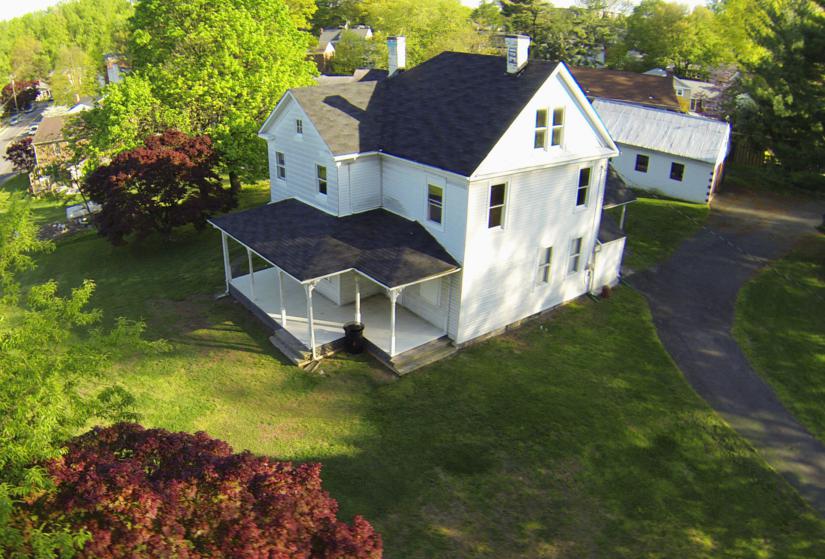After years of debate over the future of the historic Reeves farmhouse in Bluemont, a solution that the community likes and does not require lots of taxpayer dollars may have been found.
County officials have worked up a plan to team up with Habitat for Humanity to transform the farmhouse into a group home for adults with developmental disabilities.
The Northern Virginia branch of the nonprofit is currently exploring the prospect of renovating the 118-year-old home, then turning it over to another group to manage it, Habitat director of real estate development Noemi Riveira told ARLnow.
The farmhouse sits on the 2.4-acre Reevesland dairy farm property (400 N. Manchester Street), which the county purchased in 2001. The County Board has long hoped to find some other use for the home, with community groups urging the county to transform it into a museum or learning center, but the high cost of renovating the house convinced the Board to move toward selling it instead.
Riveira cautions that her group is still in the “very, very preliminary” phases of studying the property, and she isn’t sure yet whether this plan would involve Habitat buying the farmhouse from the county. Board Vice Chair Christian Dorsey suggested that the nonprofit could end up purchasing it, then transferring ownership to whichever entity runs the group home, or simply lease the house from the county instead.
Regardless of the details, however, both Riveira and Dorsey are cautiously optimistic that this arrangement could prove to be the best possible outcome for the historic home.
“Any opportunity we have to serve anyone that needs a shelter, we’re happy to assist,” Riveira said. “It’s a bit outside of our normal program scope… but this is a demographic that needs homes, so we’re there to help.”
Riveira noted that the “community came to us” with this proposal. Specifically, Chris Tighe, president of the Boulevard Manor Civic Association, says he first floated the idea of reaching out to Habitat in a conversation with Dorsey roughly a year ago.
“A lot of nonprofits valiantly tried to save it over the years, but all of that just sort of petered out,” Tighe said. “So at one point I just said, ‘How come no one’s thought of [Habitat] before?'”
Tighe reached out to the nonprofit, and brokered a meeting with the group and Dorsey to work up an initial proposal.
Broadly, Habitat would agree to renovate the exterior of the house and select portions of the interior, as well as constructing an addition. The county estimates that renovating the home via contractors would cost anywhere from $2.5 million to $3 million, though at this stage Riveira is unsure how expensive the work would be with volunteer help.
“That was a lot of money for us… but they’re a nonprofit that can leverage volunteers, so it provides a great opportunity for a traditional renovation not paid for in traditional market ways,” Dorsey said.
Riveira says the home is currently zoned to house up to eight people, so she envisions the farmhouse someday offering rooms for five or six adults with disabilities, then a few live-in counselors as well.
While Habitat is generally focused on building new homes for low-income people, Riveira says the group does have some experience working with historic properties, and would look to enlist the help of experts in the field if it moves forward with the project.
Tighe says Habitat presented that vision for the farmhouse at the civic association’s meeting last Sunday (June 17), where it earned “unanimous approval.”
“We’re pretty confident this would be a phenomenal win-win for everybody,” Tighe said.
If all works out, the farmhouse’s future could be decided by the end of the year.
“Reasonably, I would hope that we’ll know within the next three to six months concretely if we’re moving forward on this,” Dorsey said.



